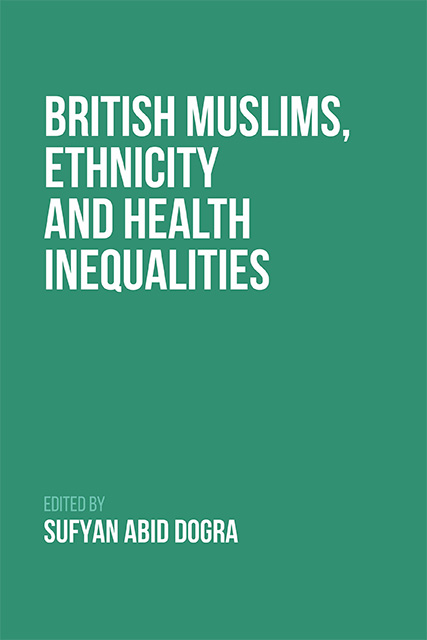10 - Islamophobia Makes Us Sick: The Health Costs of Islamophobia in the UK
Published online by Cambridge University Press: 18 October 2023
Summary
Introduction
Racial inequities in social and health outcomes are well documented. However, understanding the impact of Islamophobia, one of the most prevalent discriminatory systems, is limited. In this chapter I look at Islamophobia as a global and intersectional system of oppression, exploitation and exclusion which produces discrimination, disadvantage and disparities. These shape British institutions and society and impact the health of structurally pathologised populations and individuals. I draw on cross-disciplinary frameworks to analyse the multiple pathways through which Islamophobia directly, indirectly and intersectionally causes health inequities, mediating its effects through structural and social determinants, stigma and embodiment. I integrate public health and rights-based approaches with a unifying focus on ethics and justice to advocate the need to eliminate health inequities caused by Islamophobia.
A Brief History of Muslim Migration in the UK
Islam is the second largest religion in the UK with 2.8 million people, half of whom were born in the UK (ONS 2011; Elahi and Khan 2017). The presence of Islam in Europe spans centuries. Islamic culture influenced the arts, architecture, medicine, music, language, agriculture, law, education and technology in medieval Europe, laying the foundations of the European Renaissance (Essa and Ali 2012).
The majority of British Muslims have their origins in South Asia, reflecting British colonial legacy, but this demographic is shifting (MCB 2015). Muslim presence in the UK can be traced back to hundreds of years ago, when lascars and sailors arrived from the Indian subcontinent, South-East Asia and parts of the Middle East to work on docks (Ansari 2004). It was after the Second World War that destruction and labour shortages stimulated large-scale recruitment of British Commonwealth citizens, many of who were Muslim. Once the labour shortage was ameliorated, legislation was introduced by the British government to end large-scale migration, and after the 1970s migration shifted away from economic reasons to political and humanitarian emergencies, with refugees arriving from the the Middle East, Africa and Central Asia, and asylum seekers from the Muslim-majority European countries of Bosnia and Kosovo, creating an increasingly ethnically diverse community (Elahi and Khan 2017).
- Type
- Chapter
- Information
- British Muslims, Ethnicity and Health Inequalities , pp. 207 - 240Publisher: Edinburgh University PressPrint publication year: 2023



